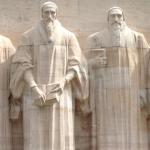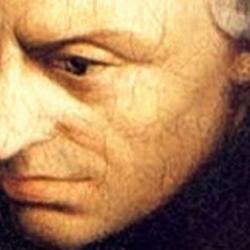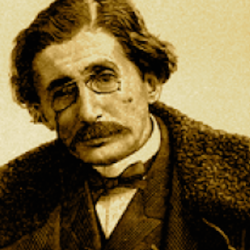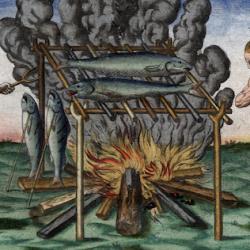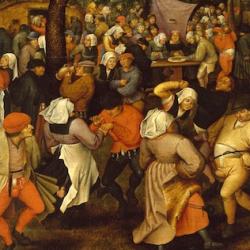“All theory is eye-obsessed,” writes Eugen Rosenstock-Huessy in the recently published first volume of his Sociology (3). Theoria is a vision-rooted concept, and a theory attempts to grasp the “idea” of the matter by looking at things from all sides.
Eyes, though, “whether empirical or inner – have one limitation, despite all their capabilities for insight and outlook. They may contemplate all sorts of things from every side except one: They cannot see him who sees” (4).
In this hinterland behind the eyes is the “real man,” who is comprised of “the things to which we are connected with our love, or with passions of other kings – thus the self-loved ‘I,’ the beloved ‘You,’ the hated ‘He,’ the feared ‘They'” (4).
This hinterland is “inaccessible to any theory. For these powers heave and surge without rest, and change incessantly. We have no other choice but to listen closely to as to hear their roar and sough” (4). The ear must be added to the eye; to theoria must be added hearing.
For Rosenstock, this is one way to open up the duality of space, the division between the incommensurate aspects of “inner” and “outer.” A purely theoretical sociology, one that doesn’t hear, isn’t dealing with actual human beings, but with surfaces.
He makes the same point from a different angle earlier in the book, arguing that sociology aims to liberate: “Men are never wholly known to each other. But those fetters, chains, walls, and barbed wire fences, those bond and bands, eras and epochs that cast their spell on us: all these detours from freedom are apt to be brought under a general denominator – and we should make it our business to know them wholly and exhaustively. For what is wholly known is dead. In the Cross of Reality our communal life will be freedom from the bonds of death” (liii).
Rosenstock’s sociology thus doesn’t aim to know, to reduce the living human being and society to a dead specimen. His sociology begins instead from acknowledgement, an acknowledgement born of speech and hearing.


